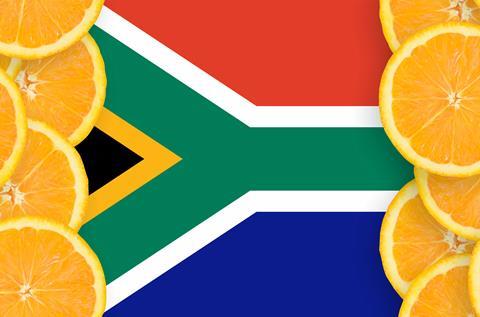South African citrus industry takes dispute with the European Union to the highest debating room in Parliament
Over the past year South Africa’s citrus industry has made several passionate calls to the country’s government to intervene in the dispute between the country and the European Union regarding new false codling moth (FCM) regulations for citrus from South Africa.

Now the industry has asked the country’s president to ‘draw a line in the sand’ on these new EU Regulations, which it has said are threatening future exports to Europe.
The industry has done so with a special plea to the country’s president, Cyril Ramaphosa, asking him to address the matter in the high-level State of the Nation Debate (SONA) being held in Cape Town this week.
The stakes are high, and the citrus industry has pointed out that the new requirements – where all oranges shipped to the EU will need to be pre-cooled to below 2 degrees celsius and then maintained for 20 days – would have a devastating financial impact on growers.
Ramaphosa has been asked to provide an urgent update on whether the government intends to convene a World Trade Organisation (WTO) panel to adjudicate on the new FCM regulation.
The South African Citrus Growers Association (CGA) believes that a panel is the only option to put a stop to what they have called an ”unjustified and discriminatory regulation” which threatens the survival of citrus growers and the tens of thousands of jobs the industry sustains.
Previously, the CGA confirmed that efforts to review the regulations had reached a stalemate.
South Africa last year declared a dispute with the EU at the World Trade Organisation (WTO). Last month they also asked the South African minister of trade to intervene by asking for the establishment of such a panel.
The minister addressed the SONA debate this week but did not refer to the matter at all. Instead he spent most of his time on discussing the new African Free Trade Agreement and efforts to stimulate the country’s ailing economy.
In a carefully worded statement, the CGA said it was grateful for the support provided by the South African government to date.
“We understand that there have been several engagements between South African government officials and their EU counterparts over the past few weeks, with the issue also receiving attention at a ministerial and presidential level,” the association noted.
”However, despite ample evidence having been provided that shows the new regulation to be contrary to scientific evidence, unnecessarily trade restrictive and accordingly, in contravention of international requirements for such phytosanitary trade regulations, the EU has refused to make any concessions ahead of the 2023 export season, which kicks off in March.”
Time is clearly running out and the South African industry is concerned at what could happen to it in the 2023 season.
No details have been provided about the additional costs and disruption which could be expected if the regulations are left unchanged.
The CGA referred to a potential loss of income amounting to more than R500m in 2023, while an investment in cold storage technology and capacity of nearly R1.4bn would be required to enable full compliance.
Since he delivered his State of the Nation address, Ramaphosa has been on the back foot, with electricity problems and economic and service delivery decline, as well as other local issues, dominating debate.
One wonders, with this avalanche of problems, just how much attention the citrus plea will get in the debate.



